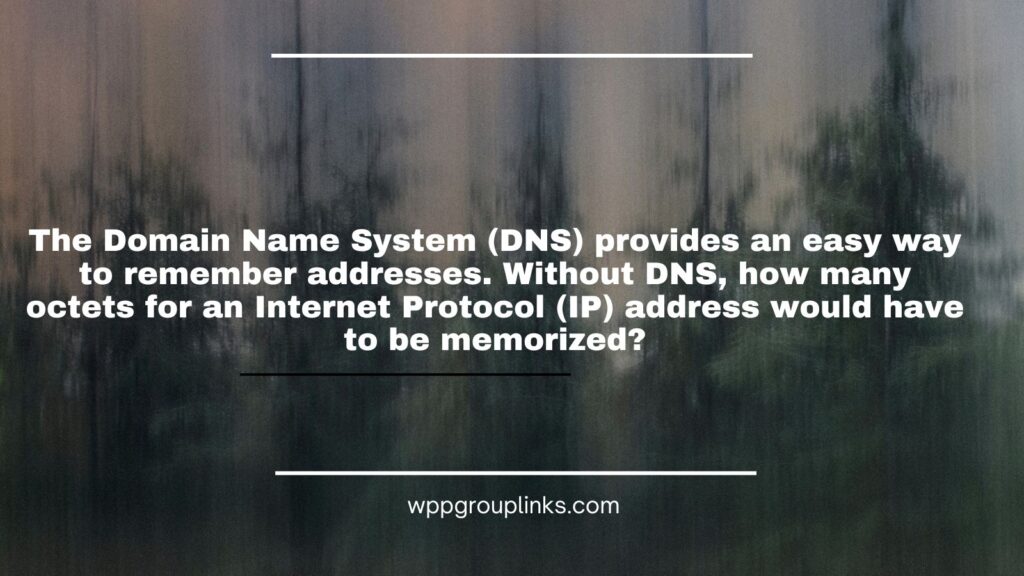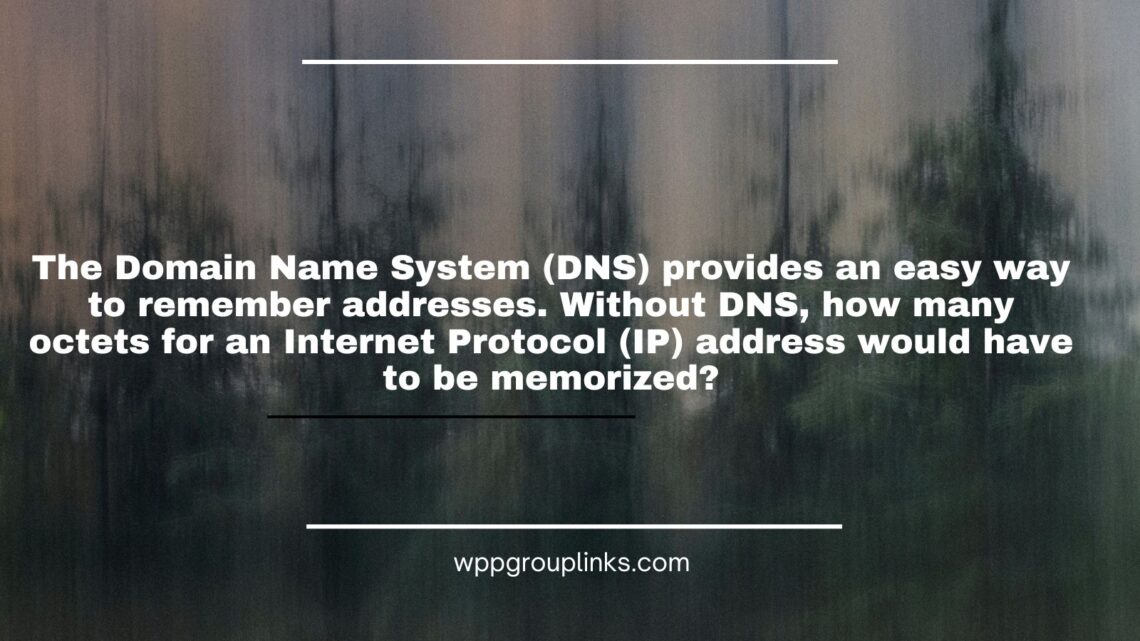
Q: The Domain Name System (DNS) provides an easy way to remember addresses. Without DNS, how many octets for an Internet Protocol (IP) address would have to be memorized?
or
Q: A simple method for remembering addresses is the Domain Name System (DNS). How many octets of an Internet Protocol (IP) address would one need to learn if DNS didn’t exist?
- 4
- 48
- 32
- 10101010
Explanation: Without Domain Name System (DNS), users would be required to commit to memory the whole binary form of Internet Protocol version 4 (IPv4) addresses, which have 32 bits. In most cases, Internet Protocol version 4 addresses are written as four octets in decimal notation, with dots between each octet (for example, 192.168.0.1). Because each octet is equivalent to eight bits, the whole IPv4 address would consist of 32 bits. When compared to the human-readable decimal format that is made possible by DNS, knowing and dealing with the binary version of these addresses would be far less convenient and user-friendly.




